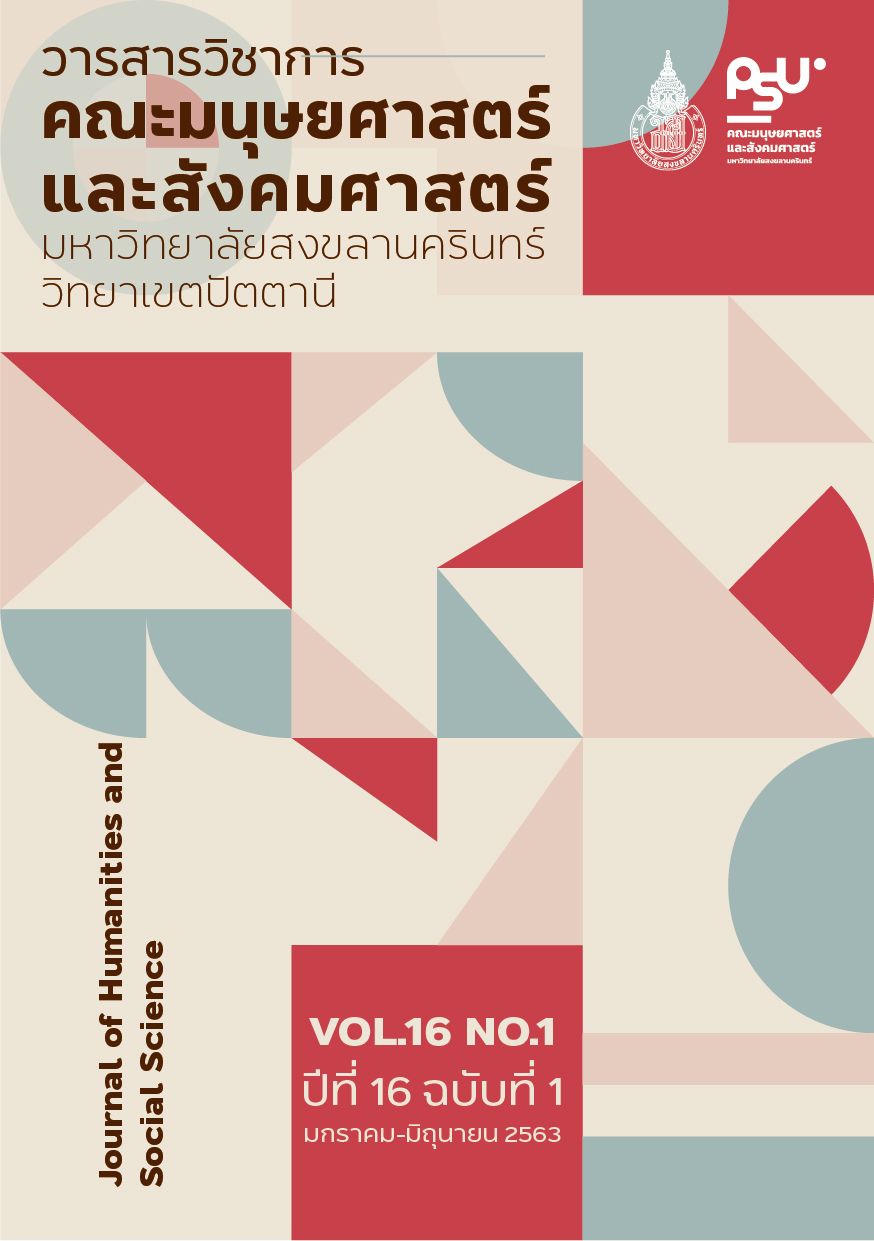A Study of Belief in Karma and Its Consequences of Undergraduates in the Three Southern Border Provinces of Thailand
Keywords:
Belief, Karma and Its Consequences of Undergraduates, Three Southern Border Provinces of ThailandAbstract
This research was aimed at (1) studying karma and its consequences in Buddhism and (2) analysing belief in karma and its consequences relating to the belief of cycle of life in the views of undergraduates. Data were obtained through documentary research, a questionnaire and interviews.
This research focuses on 3 universities as purposive sampling which includes 400 questionnaires and 40 interviews as follows:
Questionnaires : Prince of Songkla University 210 copies,Yala Rajabhat University 160 copies,
Princess of Narathiwas University 30 copies
Interviews : Prince of Songkla university 22 copies,Yala Rajabhat University13 copies, Princess of Narathiwas
university 5 copies.
The findings indicated the following:
- Both male and female undergraduates had a high level of understanding of karma in Buddhism.
- Both male and female undergraduates believed, yet doubted, in karma and its consequences.
The undergraduate participants had basic understanding of karma definition and its consequences that “as ye sow, so shall ye reap”. Karma can be expressed physically, verbally, and mentally, empirically reflecting basic belief in the virtues and evils which was cultivated by their families and influenced by their media consumption.
In addition, the participants were aware that virtue and evil karmas were primarily based on intentions. Virtue deeds or wholesome actions and evil deeds or unwholesome actions had brought the past effect to present and potentially to future consequences. They also believed in going to the Paradise and the Hell depending on their good deeds and bad deeds, respectively, according to the belief in Buddhism.
References
2.ขุนสรรพกิจโกศล. (2517). คู่มือการศึกษาอภิธัมมัตถสังคหะ ปริจเฉท 5 วิถีมุตตสังคหวิภาค เรื่องกรรมอารมณ์, กรุงเทพฯ : ศิวพร.
3.ปัทมา เอื้อรักษ์โอฬาร. (2554). การศึกษาความสัมพันธ์ระหว่างคำสอนเรื่องกฎแห่งกรรมตามที่ปรากฏในคัมภีร์
4.พระพุทธศาสนากับคำสอนเรื่องกฎแห่งกรรมของ พระธรรมสิงหบุราจารย์ วัดอัมพวัน จังหวัดสิงห์บุรี. วิทยานิพนธ์พุทธศาสตรมหาบัณฑิต สาขาวิชาพระพุทธศาสนามหาวิทยาลัยมหาจุฬาลงกรณราชวิทยาลัย.
5.พระเทพเวที (ประยุทธ์ ปยุตฺโต). (2531). กรรมตามนัยแห่งพุทธธรรม. กรุงเทพ : อัมรินทร์พริ้นติ้ง.
6.พระธรรมธีรราชมหามุนี(วิลาศ ญาณวโร). (2519). กรรมทีปนี ภาค1 ตอน1. โรงพิมพ์เลี่ยงเซียงจงเจริญ. กรุงเทพมหานคร.
7.พระธรรมปิฎก (ป.อ. ปยุตฺโต). (2546). พุทธธรรม ฉบับขยายความ พิมพ์ครั้งที่ 8. กรุงเทพฯ : มหาจุฬาลงกรราชวิทยาลัย.
8.พระธรรมปิฎก (ป.อ. ปยุตฺโต). (2548). นรก-สวรรค์สำหรับคนรุ่นใหม่และเชื่อกรรม-รู้กรรม-แก้กรรม. กรุงเทพฯ : อมรินทร์.
9.พุทธทาสภิกขุ. (2537). เยาวชนกับศีลธรรม. (พิมพ์ครั้งที่ 2), กรุงเทพฯ: ธรรมทาง.
10.---------------. (2543). ค่ายธรรมบุตร. (พิมพ์ครั้งที่ 2). กรุงเทพฯ: ธรรมทาน.
11.---------------. (2554). ลูกเทวดา. กรุงเทพฯ: ส่องแสง.
Downloads
Published
How to Cite
Issue
Section
License
บทความนี้ได้รับการตีพิมพ์เป็นของวารสารวิชาการคณะมนุษยศาสตร์และสังคมศาสตร์ คณะมนุษยศาสตร์และสังคมศาสตร์ มหาวิทยาลัยสงขลานครินทร์ วิทยาเขตปัตตานี






